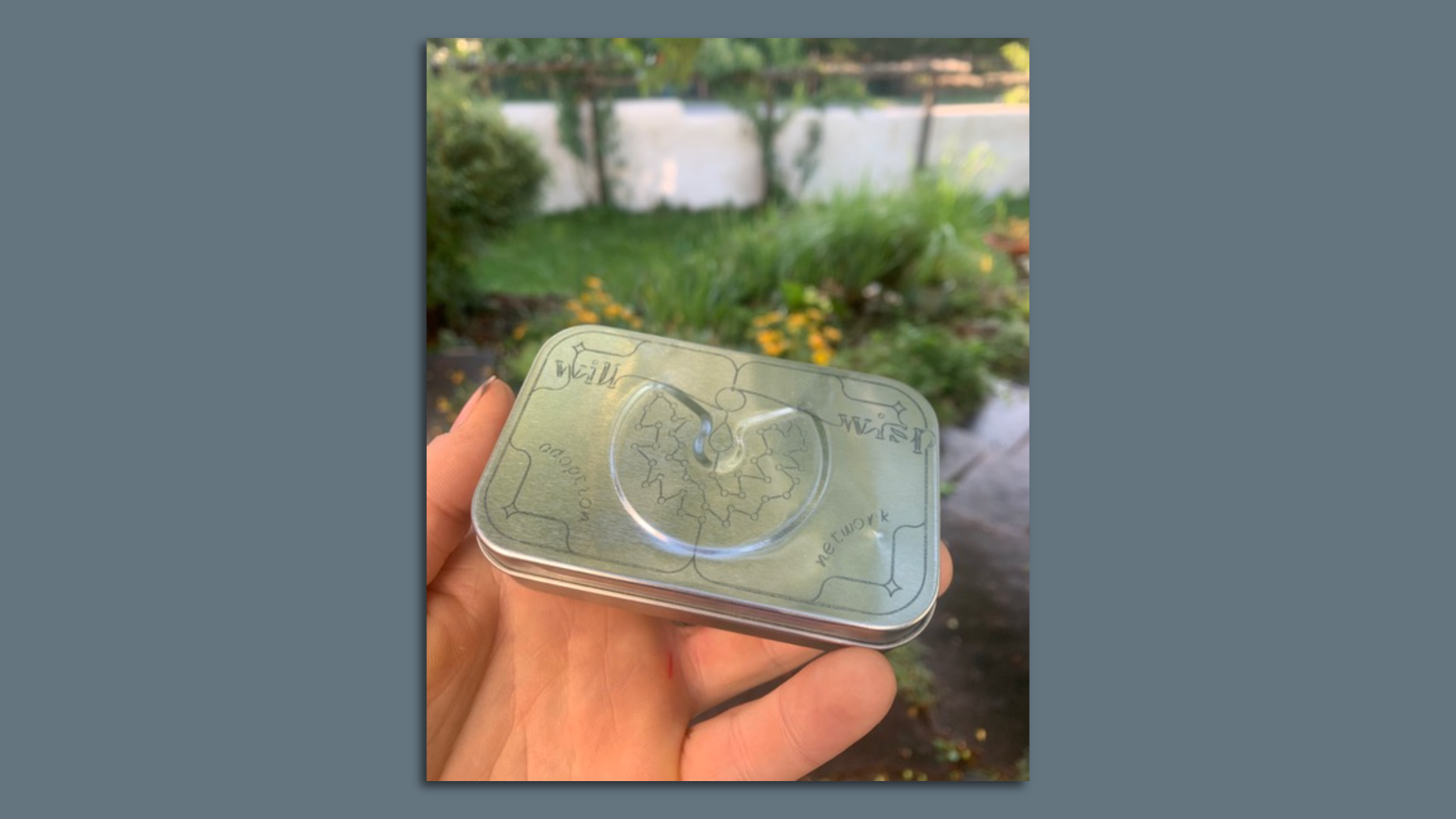The annual Burning Man bacchanal in the Nevada desert returns Sunday after a two-year COVID-19 hiatus — this time with a team of Massachusetts Institute of Technology researchers conducting a science experiment with implications for online social networks.
Why it matters: The arrival of about 80,000 whimsically costumed revelers at a makeshift encampment called Black Rock City marks some sort of reassuring-yet-ironic return to normalcy.
- And the addition of a hard science project with real-world relevance highlights the event's role as a meaningful cultural phenomenon.
Driving the news: As the "Burners" arrive in Black Rock City (near Reno), MIT Media Lab researchers will hand out 600 small vessels that look like Altoids tins.
- Their goal is for people to pass them around and use the pen and paper inside to notate where and when they received the item, as well as where they're camping.
- "The idea is to map the networks of cooperation and serendipity at Burning Man," said Ziv Epstein, a Ph.D. student leading the experiment.
- Using however many tins make their way back to the MIT team after the weeklong event, they'll "map the gift economy of Burning Man," where people operate on a gifting system (and pay $575 a ticket for the privilege).
"What do the networks and ecosystems of Burning Man look like?" asks Epstein, who's attending with six colleagues. "They're not configured for efficiency, right? It's not like optimal routing from A to B that maybe happens more in the default world."

Epstein's Media Lab research group — called Human Dynamics — is "all about understanding human behavior through the lens of Big Data," he tells Axios.
- That includes "decision-making and mobility" as studied "through computational methods such as machine learning."
- "As these gifts are moving around Black Rock City, we're collecting this data about how they've moved," he said. "The end goal here is a map of the flow of information and gifts across Burning Man."
- Findings from the experiment — called the Black Rock Atlas Project — "might actually inform the design of social networks and other kinds of stuff," he said.
Epstein and fellow "Burning Nerds" will spend the week in a science-themed camp, where they'll give TED-style talks about their research in a massive geodesic dome.
- "People will just stumble in from the desert and completely randomly bump into this conversation, this talk, about — I don't know, geometry or DNA or space plants," Epstein said.
- Like the event itself, the talks are a juxtaposition of high-mindedness and survivalism: "It's a very harsh environment, and staying alive and hydrated is a big part of that."
The big picture: The 36-year-old festival — where people create fantastical artworks and ride bicycles festooned with LED lights — is a sociologist's delight.
- Burning Man's organizers have long supported academia and maintain a list of scholarly papers drawn from the event.
- The most prominent was a study published in Nature Communications in May that sought to gauge the "transcendence" of the experience.
- Researchers calibrated the ability of mass gatherings to generate feelings of "collective effervescence," a term coined by French sociologist Emile Durkheim.
- They found that "63.2% of participants reported being at least 'somewhat' transformed, and 19.5% said they were 'absolutely' transformed."
The backstory: Epstein and his colleagues first attended Burning Man in 2018, when they brought 15 poster-tube-sized "vessels," each with someone's name and picture inside — to see if the community could convey the tube to its owner.
- That didn't quite work, so this time they started from scratch.
- "You want to do something that's scientific and rigorous and gives you good data to make inferences," Epstein said. "On the other hand, especially at Burning Man, if it's boring and not very fun, people aren't going to participate."
Between the lines: They're not the only ones trying to blend art and science — and escape quotidian realities — at Burning Man.
- Ryan Sobel, a financial adviser from Denver who's attending for the first time, is part of a 27-person group that got approval for a new camp called "Consensual Abduction."
- They'll build a fire pit, a "wormhole" for guests to slide through, and a dance floor for all-night raves.
- For the event, Sobel, the group's bartender, learned to make fluorescent cocktails using Vitamin B2. "We're going to have drinks that glow, and flashlights," he said. "This will be fun."
The bottom line: Pent-up demand for fraternity, sorority and debauchery are likely to make this year's Burning Man particularly creative and memorable.
- "It'll be a very interesting time," Epstein said. "Just like with everything in the pandemic, cultural traditions kind of dry out and then get rebooted."







